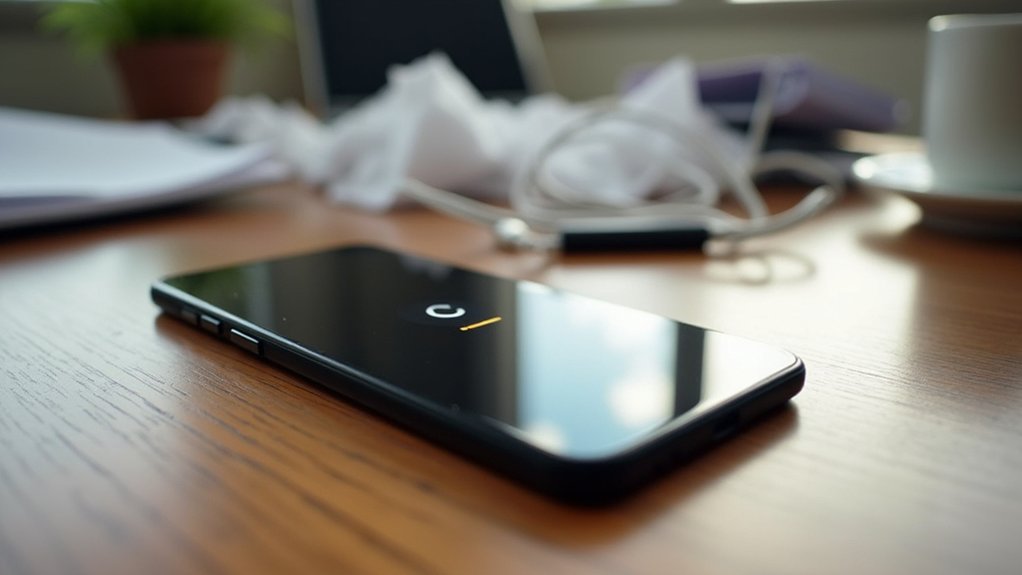
3 best ways to speed up android
Discover three effective strategies to dramatically enhance your Android's speed and performance—your device's potential is waiting to be unleashed!
Is your phone running slow and lagging behind? It’s a common issue, and it can be incredibly frustrating when your smartphone doesn’t respond as quickly as it should. Your phone running slow can be attributed to several factors, including unused apps and outdated software. Understanding why your phone is running slow is crucial for restoring its performance, but pinpointing the exact cause isn’t always straightforward. Let’s dive into what might be causing your smartphone to drag and how you can fix it. By addressing these issues, you can get your phone running smoothly again and enhance your overall mobile experience.

Is your smartphone feeling sluggish? It might be time to boost your phone’s performance by uninstalling unused apps. Every app you don’t regularly use can hog precious storage space, slowing down your smartphone and affecting its efficiency.
To get started, go through your app list and pinpoint those you haven’t opened in weeks or months. These unused apps, though initially downloaded with enthusiasm, now just take up space.
Simply tap and hold the icon of each app you wish to remove and select “Uninstall.” This straightforward action can free up space, enhance your phone’s performance, and even prolong battery life.
Plus, a decluttered app list makes it easier to find the apps you actually use. Regularly uninstalling unused apps can ensure your smartphone runs smoothly and efficiently.
If your smartphone is running slow, clearing cache and data can be a game-changer for performance. Over time, apps accumulate temporary files and data that can bog down your device. To clear the cache, head to your phone’s settings, find the app in question, and select “Clear Cache.” This simple step removes unnecessary files without deleting your personal data, improving your smartphone’s speed and responsiveness.
For a more comprehensive clean-up, consider clearing data as well. While this resets the app to its original state and erases saved settings, it can be worthwhile for apps that aren’t functioning properly. Just be prepared to set up the app again.
Regularly clearing cache and data keeps your apps running smoothly, frees up storage, and ensures your smartphone responds faster to your commands.
Updating your smartphone’s operating system is essential for keeping your device running smoothly and securely. Smartphone manufacturers frequently release operating system updates that fix bugs, enhance features, and improve overall efficiency.
By skipping these updates, you miss out on crucial optimizations that can boost your smartphone’s speed and protect it from potential vulnerabilities.
To update your smartphone’s operating system, simply go to your phone’s settings, locate the software update section, and follow the prompts. Ensure you’re connected to Wi-Fi and have enough battery life before starting the process.
Once the operating system update is complete, your smartphone will perform better, and you’ll enjoy a more secure experience. Don’t wait—stay current! Regular operating system updates can significantly enhance your device’s speed and ensure it runs as it should.
Is your smartphone feeling sluggish? Those sneaky background processes could be the culprits! When apps run silently in the background, they can drain your phone’s resources, like memory and processing power, slowing down its performance.
To speed up your smartphone, it’s crucial to disable unnecessary background processes. Simply dive into your settings and identify which apps are allowed to run in the background. Limit or turn off background processes for apps you don’t need at the moment.
For apps you frequently use, consider enabling background activity only when necessary. By taking control of these background processes, you can free up valuable resources, making your smartphone feel snappier and more responsive.
This simple tweak can significantly enhance your smartphone experience. So, don’t let background processes slow you down—take charge and enjoy a faster, smoother device!
Smartphone users often overlook the importance of optimizing storage space, yet it’s crucial for enhancing device performance.
To improve your smartphone’s storage space, begin by deleting unused apps, especially those that consume a lot of space. Check your downloads folder and eliminate unnecessary files.
Consider transferring photos and videos to cloud storage or an external drive, as these can quickly eat up your storage space. Regularly clear your cache to free up additional storage space, too.
You might also want to uninstall or disable pre-installed apps you don’t use. Lastly, keep an eye on your music and podcast libraries—streaming services can save you storage space by allowing access to media without storing it on your device.
Managing your storage space is key to keeping your smartphone running smoothly.
If you’re looking to keep your smartphone performing at its best, it’s a smart move to limit live wallpapers and widgets. Live wallpapers and widgets can personalize your device, but they’re known for consuming a lot of system resources.
Live wallpapers, in particular, require more processing power and battery life, which can gradually slow down your phone’s performance. Similarly, widgets, while handy, can be resource-intensive. Each widget on your home screen operates in the background, using memory and draining your battery.
By reducing the number of live wallpapers and widgets, you’ll free up essential resources, allowing your smartphone to operate more efficiently. Consider switching to static wallpapers and cutting back on widget use to boost your device’s speed and responsiveness.
You’ll notice the improvement in no time!
Is your smartphone feeling sluggish? Optimizing your app settings can make a huge difference. Apps can hog your device’s resources, but a few tweaks can speed things up.
Start by examining the apps you use most. Disabling background data usage and notifications for less important apps can free up valuable resources. For gaming or streaming apps, lowering quality settings can lessen the burden on your phone.
Also, consider limiting location services to when you’re actively using an app. Don’t forget to check for app updates, as developers frequently release new versions with performance boosts.
Lastly, declutter your phone by uninstalling apps you no longer use. By making these changes, you can optimize app settings to enjoy a smoother, faster smartphone experience.
After optimizing your app settings, it’s crucial to consider another simple yet effective strategy: restarting your device regularly.
Restarting your device can work wonders for your smartphone’s performance. By doing so, you clear temporary files and halt unnecessary background processes that might be slowing down your device. This refreshing action allows your system to run more efficiently.
Aim to restart your device at least once a week, or whenever you notice it lagging. This small habit can significantly improve your smartphone’s responsiveness and battery life.
Plus, restarting your device gives you a chance to clear your mind from constant notifications, offering a brief digital detox.
How can you tell if malware or adware is slowing down your phone? If your smartphone suddenly lags, apps crash frequently, or you notice unexpected pop-ups, it’s time to investigate potential malware or adware issues.
Check for unfamiliar apps you didn’t install. These could be signs of malicious software that can drain your smartphone’s resources. You might also observe excessive data usage or your battery draining faster than usual.
To tackle this issue, consider running a trusted antivirus or anti-malware app. These tools can help detect and remove harmful software.
Don’t ignore suspicious activity; addressing malware or adware quickly can restore your phone’s performance and keep your personal information safe. Stay vigilant and regularly check for potential threats to prevent malware or adware from compromising your smartphone’s security.
If you’ve ruled out malware or adware as the cause of your smartphone’s sluggish performance, it might be time to explore performance-enhancing apps.
These smartphone optimization tools can help boost your device’s efficiency by clearing cache, managing background processes, and freeing up storage space. Popular smartphone performance-enhancing apps include CCleaner and Clean Master, which simplify the cleanup process.
Additionally, consider using task managers to control which apps run in the background, helping to boost your smartphone’s speed.
Battery-saving apps can also be beneficial, as they limit resource usage and prolong battery life.
Just remember to read reviews and check ratings before downloading any app, to ensure you’re choosing the right smartphone performance-enhancing apps for your needs.
A little research can go a long way in improving your smartphone’s efficiency.
Struggling with a slow phone? Don’t fret—boosting your smartphone’s performance is easier than you think. Whether it’s due to outdated software, cluttered storage, or unused apps, there are easy fixes. Start by uninstalling apps you no longer use and clearing the cache to free up space. Keeping your phone’s operating system updated is crucial for smooth performance. Regularly restarting your smartphone and scanning for malware can also enhance speed. By optimizing storage and adjusting app settings, you’ll enjoy a faster, smoother smartphone experience. Take these steps today, and you’ll be amazed at how quickly your phone can feel like new again!